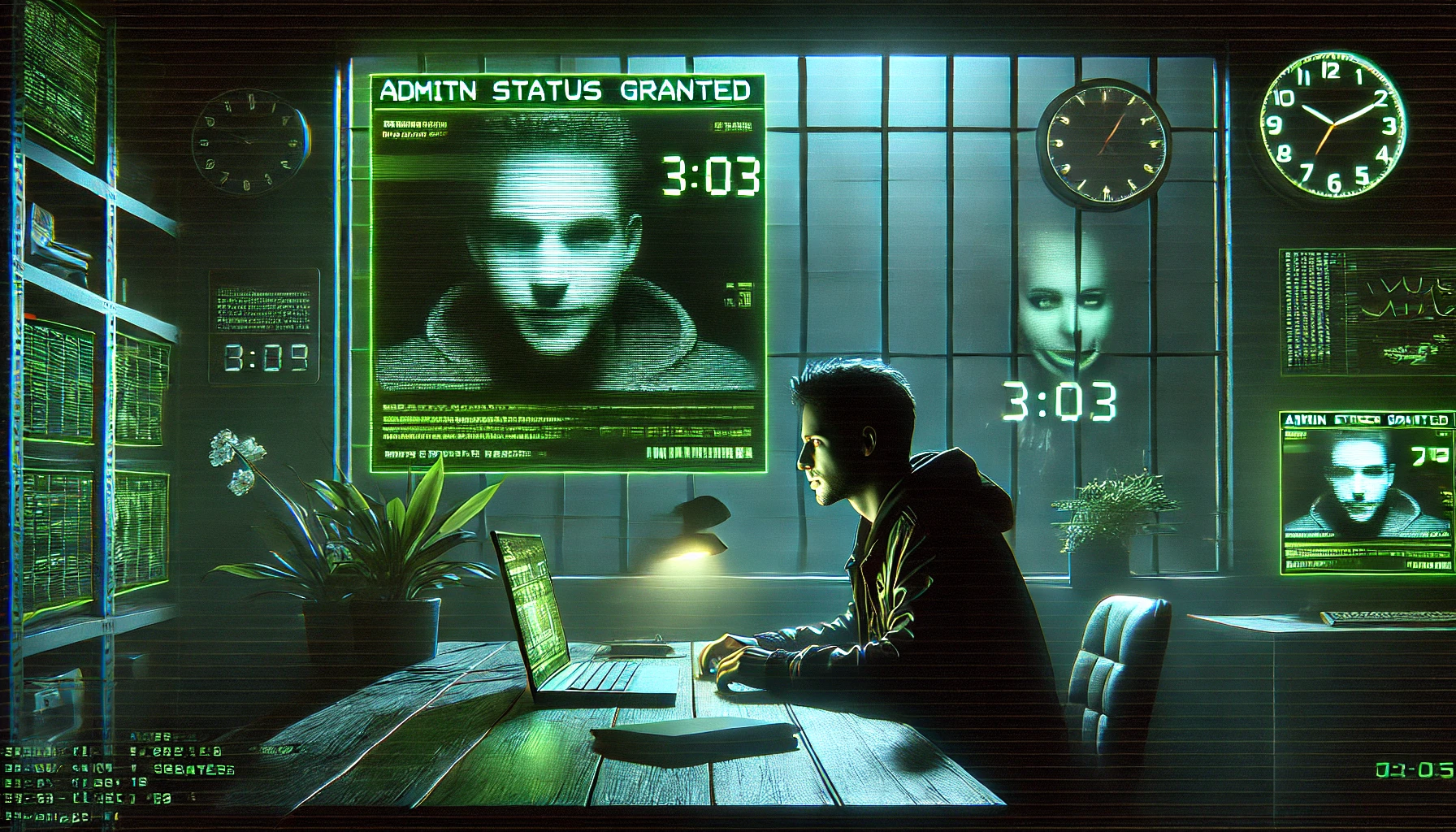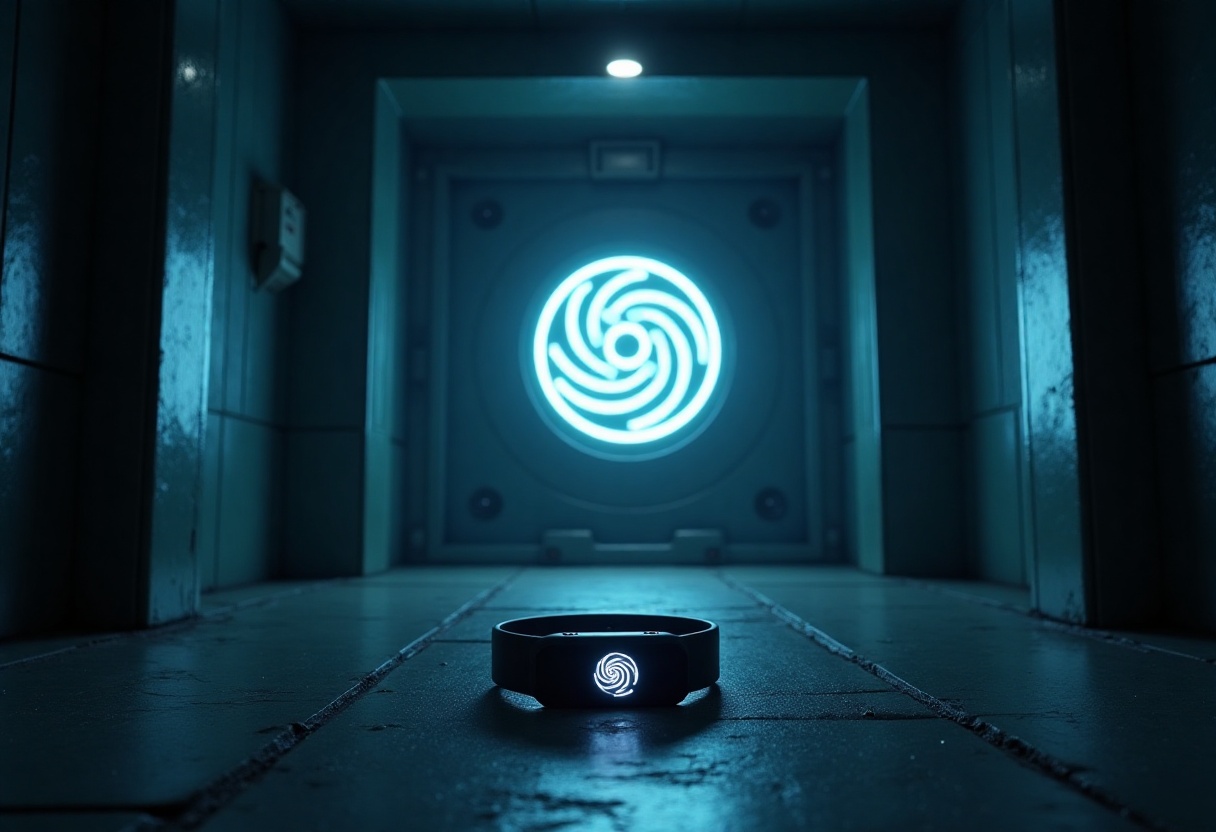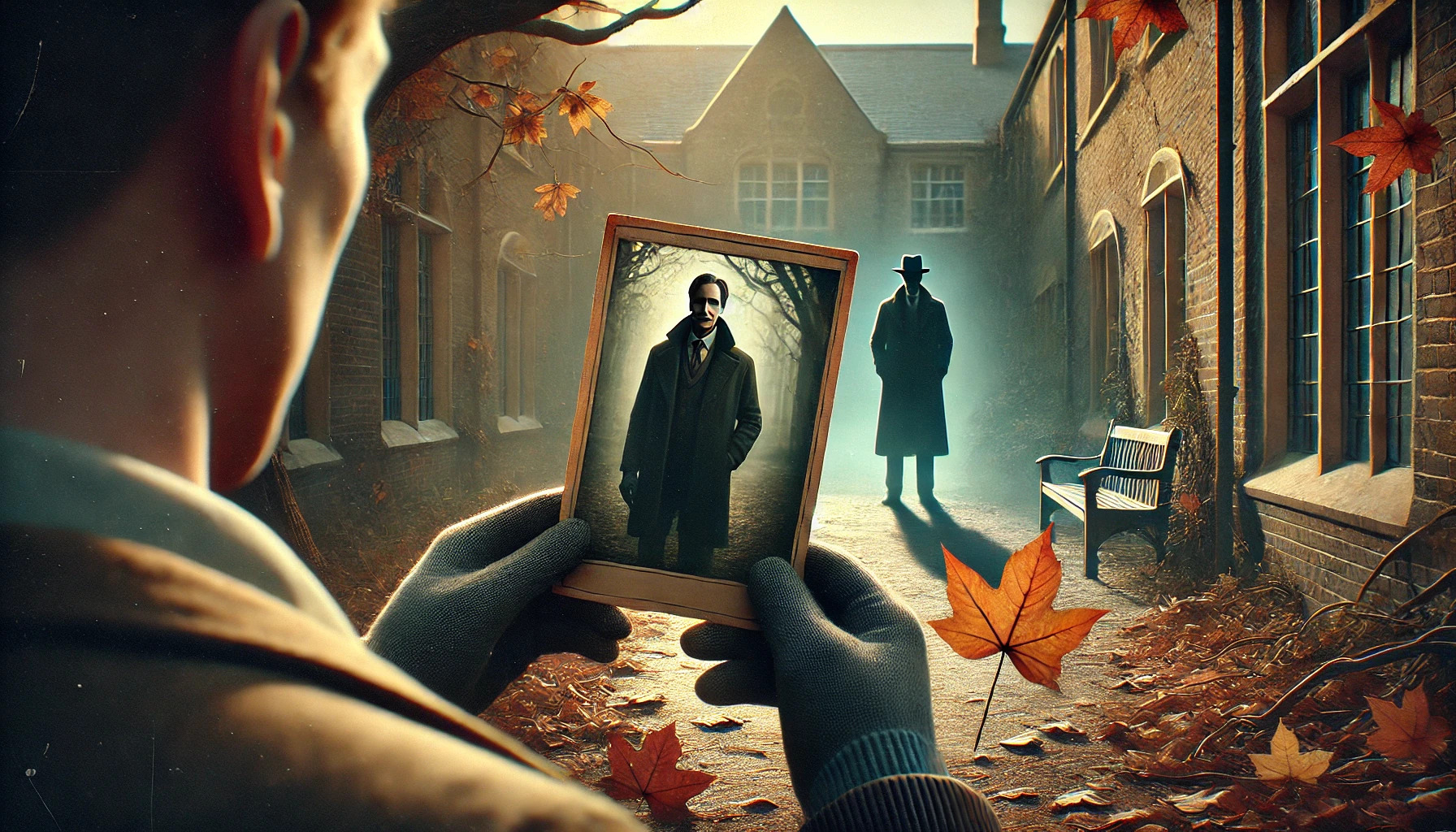
Glitch Point
After witnessing strange glitches in the sky and people around him behaving like programmed routines, game designer Adam begins to suspect the truth—his reality is a simulation. A mysterious flash drive, a repeating timestamp, and a reflection that won’t follow his movements all point to one thing: the game is watching back.
The stars blinked out one by one—clean, silent, like someone turning off a display.
A moment later, the moon stuttered mid-sky, skipped a few inches, then resumed its glow.
Adam froze in his backyard, beer in hand. He wasn’t drunk. He wasn’t dreaming. He saw it.
His hands trembled slightly, not from fear, but recognition. The way an old wound aches before the storm hits. He had seen something like this before—when his father died.
That night, at 2:17 a.m., every light in the hospital flickered three times. The heart monitor flatlined without alarm. When they wheeled the body away, Adam swore the walls flickered too. Like they weren’t real.
Now thirty-two and working as a game designer, Adam had spent years building artificial worlds—programming behaviors, routines, triggers. And lately, the real world was starting to feel... too familiar.
At the grocery store, a man picked up the same box of cereal three times, then walked away without it—exactly as one of his NPCs would when failing a decision loop.
At work, a co-worker said the phrase “you’re just a variable, bro” twice in one day, unprompted. Same tone. Same smile.
And now the stars.
He didn’t talk about it—except once. With Cam, his college roommate and AI researcher.
“You ever think,” Adam asked quietly, “that reality glitches sometimes?”
Cam looked at him too long. “I used to,” he said. “Until I realized we are the glitch.”
Adam blinked. “What do you mean?”
Cam slid a flash drive across the table. “Load this at 3:03 a.m. Watch for the green line. But only once.”
Adam stared at the drive. “Why 3:03?”
Cam leaned back. “That’s when the simulation resets unused threads.”
That night, Adam sat in front of his laptop, the flash drive plugged in. He watched the clock. 3:02.
The cursor blinked.
Then the screen went black—no boot, no warning. Just dark.
A single line of green text appeared:
“Query: Awareness threshold reached. Elevate player class?”
His mouth went dry.
Another line blinked in:
Y/N
He hesitated.
Was this a trick? A virus? Cam had been distant lately, obsessed with hidden systems and “choice illusion models.”
But what if it was real?
He looked around his dim living room. The ceiling fan spun. The digital clock on his stove blinked 3:03—then 3:01 again.
A rewind.
He tapped Y.
The screen flashed. For a split second, everything stopped. The hum of electricity. The warmth of air. Time itself.
Then: silence.
Onscreen: “Admin status granted. Begin exploration of boundary zones?”
In the reflection of his screen, Adam caught movement behind him—but when he turned, there was no one there.
Only his reflection... still staring at the monitor. Not turning.
Adam stood. The reflection did not.
He stepped forward. It remained still.
And then it smiled.
A moment later, the moon stuttered mid-sky, skipped a few inches, then resumed its glow.
Adam froze in his backyard, beer in hand. He wasn’t drunk. He wasn’t dreaming. He saw it.
His hands trembled slightly, not from fear, but recognition. The way an old wound aches before the storm hits. He had seen something like this before—when his father died.
That night, at 2:17 a.m., every light in the hospital flickered three times. The heart monitor flatlined without alarm. When they wheeled the body away, Adam swore the walls flickered too. Like they weren’t real.
Now thirty-two and working as a game designer, Adam had spent years building artificial worlds—programming behaviors, routines, triggers. And lately, the real world was starting to feel... too familiar.
At the grocery store, a man picked up the same box of cereal three times, then walked away without it—exactly as one of his NPCs would when failing a decision loop.
At work, a co-worker said the phrase “you’re just a variable, bro” twice in one day, unprompted. Same tone. Same smile.
And now the stars.
He didn’t talk about it—except once. With Cam, his college roommate and AI researcher.
“You ever think,” Adam asked quietly, “that reality glitches sometimes?”
Cam looked at him too long. “I used to,” he said. “Until I realized we are the glitch.”
Adam blinked. “What do you mean?”
Cam slid a flash drive across the table. “Load this at 3:03 a.m. Watch for the green line. But only once.”
Adam stared at the drive. “Why 3:03?”
Cam leaned back. “That’s when the simulation resets unused threads.”
That night, Adam sat in front of his laptop, the flash drive plugged in. He watched the clock. 3:02.
The cursor blinked.
Then the screen went black—no boot, no warning. Just dark.
A single line of green text appeared:
“Query: Awareness threshold reached. Elevate player class?”
His mouth went dry.
Another line blinked in:
Y/N
He hesitated.
Was this a trick? A virus? Cam had been distant lately, obsessed with hidden systems and “choice illusion models.”
But what if it was real?
He looked around his dim living room. The ceiling fan spun. The digital clock on his stove blinked 3:03—then 3:01 again.
A rewind.
He tapped Y.
The screen flashed. For a split second, everything stopped. The hum of electricity. The warmth of air. Time itself.
Then: silence.
Onscreen: “Admin status granted. Begin exploration of boundary zones?”
In the reflection of his screen, Adam caught movement behind him—but when he turned, there was no one there.
Only his reflection... still staring at the monitor. Not turning.
Adam stood. The reflection did not.
He stepped forward. It remained still.
And then it smiled.



Comments